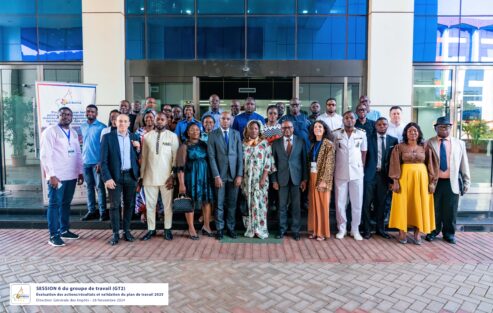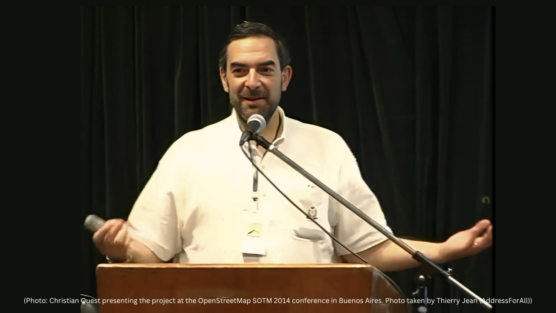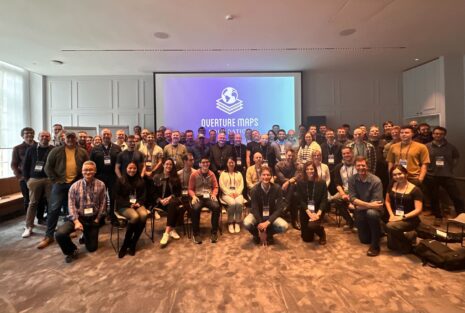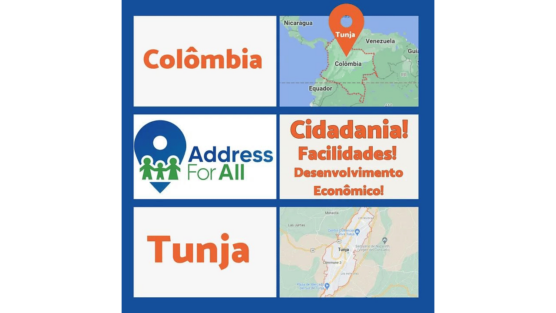The IBGE has just published the address database prepared and verified for the 2022 Census, bringing forward the publication date to facilitate the work of the teams involved in responding to the floods in Rio Grande do Sul. This is the CNEFE, the National Registry of Addresses for Statistical Purposes. The initiative is very positive, and the effort made deserves recognition from Brazilians.
For the first time, this database includes coordinates, latitude and longitude, and not just street names, house numbers, zip codes and cities. It may seem like a small detail, but this information is very relevant to the country because people’s addresses are what make a series of operations in all social, administrative and commercial areas of a nation possible and which, ultimately, qualify fundamental aspects of citizenship. For example:
- Medical Emergencies: Geolocated addresses save lives by allowing ambulances to efficiently reach their destination.
- Fuel Economy: Accurate directions avoid unnecessary turns.
- Mail Delivery: Quality addresses reduce rework due to errors in the delivery of mail, goods and services.
- Health Management: Trusted addresses help manage epidemics, identifying areas of contagion and enabling health barriers.
- Public Policies: Accurate addresses are essential for the distribution of funds and the planning of public policies.
- Disaster Management: Addresses are essential in managing natural disasters, characterizing risks and identifying victims.
- Tax Collection: Accurate addresses are necessary for efficient tax collection.
Addresses have a significant impact on the life of a country, often without public and private managers realizing it. If this were not the case, the investment we propose in this article would have been made long ago.
From this launch of CNEFE with coordinates, a unique opportunity is seen: the Federal Government could lead the launch of a collaborative address base project (platform) that would increase national productivity and reduce addressing errors.
An exceptional return on investment
Ask any shipping company CEO how much money would be saved if all their delivery addresses were perfectly standardized and located on a map. The common answer is: “We would save about 5% of our operating costs.” Considering that logistics represents 13% of Brazil’s GDP, according to FGV Transporte , we can deduce that a quality address database could impact Brazil’s GDP by up to half a percentage point, or approximately R$54 billion. A huge return on a meager investment, but necessary to complement a database like this one, prepared by IBGE, with the creation of a permanent project to collaboratively update Brazil’s address database.
But Brazilian addresses are not available?
Someone might say: if I need to know where number 575 on Paula Souza Street in Itú – SP is, I just need to type it into my favorite map application and I will have the answer. In fact, this answer is offered free of charge by private companies to individuals who help them verify their data. To have systematic access to these applications on a professional or corporate basis, however, it is necessary to pay around R$65 thousand per year. Even so, the companies that provide this service are unable to have all the addresses in the database because it is a gigantic task. The challenge is to make the most of the address data published by some Brazilian municipalities and, for the rest of the territory, to go into the field with vehicles that take photos at street level and to survey the house numbers. This digital collection then has to be processed later by algorithms and by specialized and expensive labor.
In this context, the IBGE teams are to be congratulated for publishing the CNEFE address registry with its geographic coordinates for the first time. This is a great goal scored by the country. It partly justifies the investment made in the Census, since it makes it possible for an IBGE agent/census taker to visit every Brazilian home. Since these agents began using cell phones in their field collections, they can determine the latitude and longitude of each home. The database produced is, therefore, national, without gaps and homogeneous. It is a fantastic tool for mapping companies, city governments, governments, universities, logistics companies, software companies and society as a whole.
Overcoming the Statistical Secrecy Paradigm
In publishing this database, the IBGE broke an important paradigm in the global culture of statistics: the interpretation of the law on statistical confidentiality. In fact, statistical institutes around the world follow very strict rules to not publish individualized and personal data collected at the time of the census, which is very important. In all countries, there is the so-called law on statistical confidentiality that guarantees this. The perverse result is that since addresses are generally included in census databases, statistical institutes do not publish them, arguing that they cannot publish census data out of respect for the law on statistical confidentiality. The merit of the IBGE was to reinterpret the law in a more modern and intelligent way. After all, the address is not the result of interviews conducted in the census and does not depend on people’s answers or even on who they are. The address is public information that is not linked to a person and that can be collected by anyone who goes to a house, writes down the house number, the street name and collects the latitude and longitude of the location. What is not public, as IBGE is aware, is the link between the address and the set of responses given during the Demographic Census and also the identification of the respondent. This will, of course, remain confidential.
The IBGE understood that the address database is information that allows the census to be operationalized and organized, but that it is not the result of the census. And since the addresses were disclosed without any personal information, they can be published without violating the General Personal Data Protection Law (LGPD) or the statistical confidentiality law.
International Initiatives and Opportunities for Brazil
The Brazilian institute was probably the first to break this paradigm in Latin America, starting the process of publishing addresses in 2011. The Brazilian example has already been followed by INEGI in Mexico, INE in Uruguay in 2017 and DANE in Colombia in 2022. However, the statistical institutes of Ecuador, Peru, Chile, Argentina and Paraguay have not yet published their databases, despite the efforts made by the AddressForAll Institute, an NGO that advocates for this publication on the continent and around the world.
Brazil is now close to launching a collaborative and open address database project that is constantly updated. And who better than the IBGE to do this? This project would consist of inviting all entities that deal with addresses to share their address data with the project, allowing the data to be improved, which would become “unique” through an unprecedented social collaboration initiative in Brazil. Ministries, the Federal Revenue Service, agencies, city governments, public service providers, and logistics companies could all submit to the project the improvements they make to their address database so that everyone can benefit from the joint effort, generating much greater productivity and effectiveness for the country. Civil society entities, universities, and research institutes would certainly support and become strongly involved. A similar project was launched in France (Banque d’Adresses Nationale) and Uruguay (Sistema Único de Direcciones de Uruguay). It is a success and a great step forward for these countries.
To launch the project, it is not necessary to have a law or legislation. For example, the French project was launched in 2014 and regulated by a law in February 2022, 8 years later! The Uruguayan project, which brought together the efforts of the Post Office, the National Institute of Statistics of the national energy company and the National Spatial Data Infrastructure (INDE) was launched in 2017 and was the subject of a presidential decree establishing the “Sistema Único de Direcciones de Uruguay” in May 2022, 5 years later! In Brazil, if some public officials from some agencies come together around the idea, it will grow naturally, until it has enough weight to justify legislation.
We hope that IBGE, or some other organization motivated by the issue, will not delay in launching this address database project in the country.
In this view, considering that many of the country’s data, whether from the Census, DATASUS, DATAPREV, the Federal Revenue Service or other sources, deserve to be harmonized, organized and published in an open format by the government, the address database project can be a first step for different agencies to collaborate, instead of keeping their data in independent silos that do not communicate with each other.
These initiatives could reduce information redundancy and perhaps eliminate the many discrepancies that still exist in public databases. Harmonizing and organizing this data is a challenge for everyone and promises great added value to society if Brazil knows how to do its homework.
source:
https://www.impacto.blog.br/colunas/a-quem-pertencem-os-enderecos-dos-brasileiros/
authors:
Thierry Jean is French, living in Brazil since the 1990s, a business administrator, graduated from Neoma Business School (France and England). He has worked in small and large startups. He is co-founder and president of the Institute of Geo-social Technologies AddressForAll, which maintains an open and collaborative database of addresses in Latin America and advocates for the publication of address data by governments.
Eduardo de Rezende Francisco, Professor of GeoAnalytics, Head of the Technology and Data Science Department at FGV EAESP and founder of GisBI, participates in the development of information and AI platforms, with social objectives, researcher at FGVanalytics – eduardo.francisco@fgv.br
Rubens de Almeida , Civil Engineer and journalist, dedicated to the development of information solutions for the Third Sector, collaborates with the creation and evolution of the Longeviver platform, Master in Management and Public Policies (MPGPP) at FGV EAESP

Thierry intervenes in the World Statistics Congress in The Hague (Netherlands)

What We Learned in Our Webinar on Unique and Open Address Database Projects in Countries!

Delivering the BANOC Codes: A Landmark for Open Addressing in Cameroun

10 Years of BAN (Base Adresse Nationale): A Revolution in Address Management in France
Hey how's it going?
Can you write your comments here?










eQnuIRXv